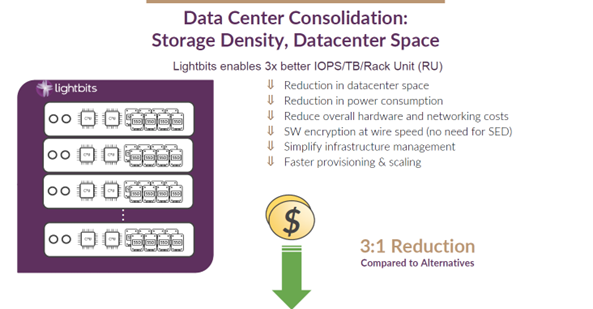Companies face a crucial challenge: how to store, manage, and access ever-growing volumes of data efficiently without breaking budget limitations. While storage decisions are typically considered IT-driven, they have significant financial implications. CFO should weigh in on the process for cost optimization consideration and also identify all types of storage hidden fees. For many companies (SAAS, Cloud Service Providers (CSP), enterprise and others), storage costs are a significant line item in the company’s planned budget.
Per Gartner report, “Worldwide IT spending is expected to total $5.61 trillion in 2025, an increase of 9.8% from 2024, according to the latest forecast by Gartner, Inc.”. In addition, the Gartner report states that “Spending on AI-optimized servers easily doubles spending on traditional servers in 2025, reaching $202 billion.”
We also need to consider The AI Cloud Revolution. Kam Eshghi, Lightbits CSO, stated that “AI isn’t slowing down. Whether it’s private AI clouds in Europe or climate-conscious AI infrastructure in the US, the need for efficient, high-performance storage is greater than ever. Companies that invest in the right storage backbone will unlock AI’s full potential – without the limitations of hyperscaler clouds or legacy storage solutions.
As we can see, storage usage and related costs are significantly increasing year over year. How can the CFO continue to improve and challenge the current storage purchasing process in order to meet budget requirements and optimize shareholders’ value by increasing operating margin?
SDS is a game-changer that CFOs are starting to pay close attention to:
- Cost optimization: Unlike traditional storage solutions that come with high capital expenditure due to vendor-specialized hardware, SDS can run on any off-the-shelf hardware. In addition, it enables better resource utilization and reduces overprovisioning. This will reduce CapEx and optimize OpEx through automation and simplified management.
- Scalability: SDS is an agile, just-in-time approach to storage spending, which allows companies to scale storage incrementally as business needs grow and prevent upfront infrastructure investments.
- Vendor flexibility: as stated above, SDS can run on any off-the-shelf hardware, which supports a better vendor selection, negotiation process and encourages competition. In addition, SAS helps to extend hardware lifecycles and reduces e-waste by repurposing existing infrastructure.
- SDS offers built-in data protection, replication, and disaster recovery capabilities. This can support a lower potential financial impact from downtime and reduced investment in separate backup and disaster recovery systems.
- Cost predictability: Different storage solutions may include multiple hidden fees that are very difficult to estimate in advance. Billing can significantly vary based on usage patterns and features. SDS pricing, which is based on raw capacity, can provide simplicity and predictability for cost management. Billing is straightforward; there’s no need to track complicated metrics like compression ratios or usage peaks.
- Hybrid use: SDS is available for public, private, hybrid, and edge clouds. Companies are not required to be tied to a specific cloud deployment and can have the flexibility of storage deployment selection to optimize costs per performance requirement and improve data mobility.
- Operational efficiency: overall reduction of Total Cost of Ownership (TCO) results from deploying the SDS solution. SDS platforms include advanced automation, centralized management, and integration with orchestration tools. This reduces the time and resources needed to manage storage, enabling simplified maintenance and troubleshooting, reduced administrative overhead and provisioning and scaling.

Software-Defined Storage is not just a technical evolution. It’s a strategic paradigm shift. By lowering hardware costs, optimizing hardware usage, reducing operational complexity, and enabling flexible, scalable growth, SDS enables a competitive advantage.
At the heart of this transformation is Lightbits, which delivers Software-Defined Storage with high performance, cost-efficiency, and resiliency for any cloud implementation model. Available for public, private, hybrid, and edge clouds, Lightbits delivers the right level of performance to cloud applications–whether virtualized or containerized.
